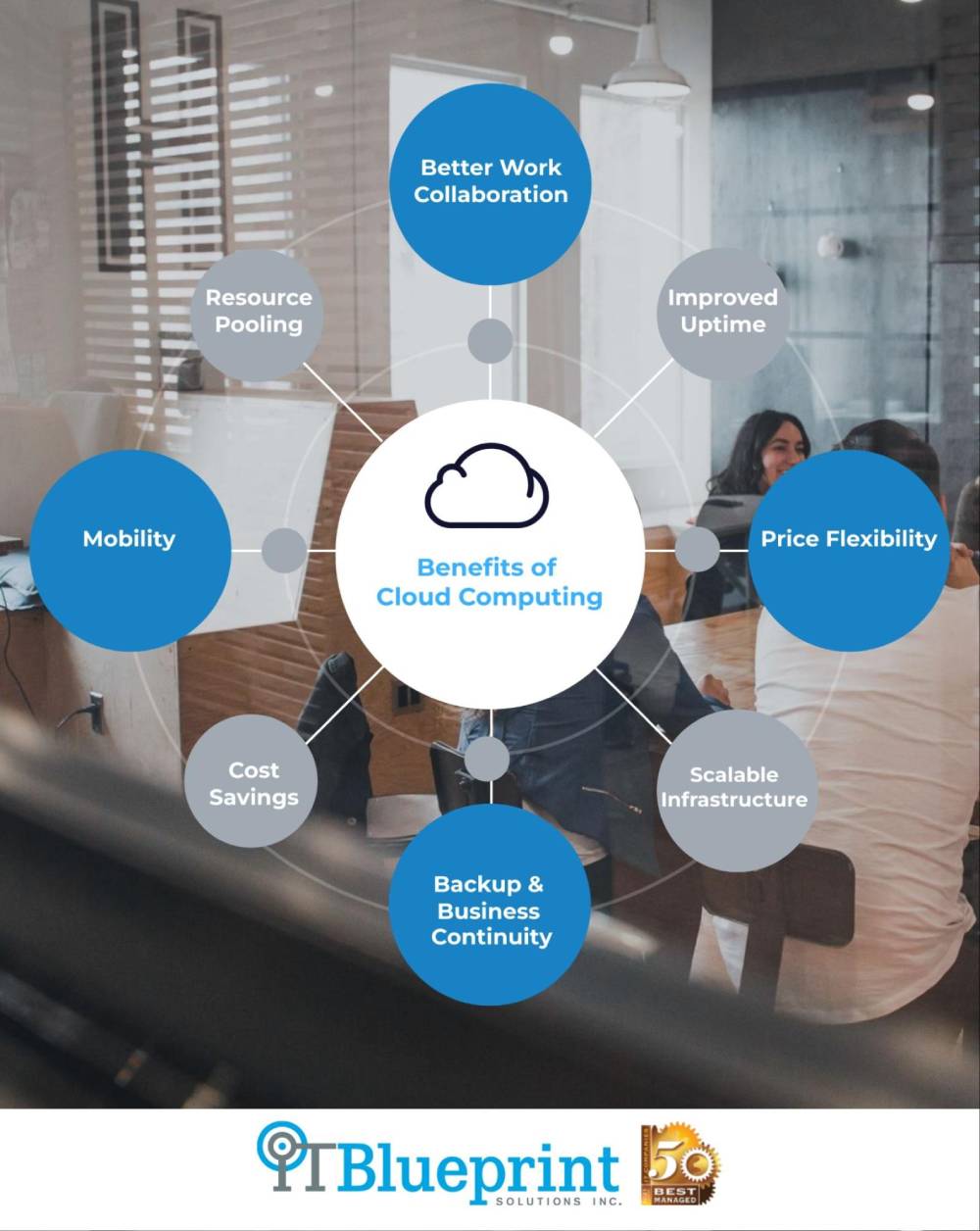It’s hard to argue the rise and importance of cloud computing in recent years.
With the cloud computing market expected to more than double from $445.3 billion in 2021 to $947.3 billion by 2026, cloud computing is ballooning fast as more businesses turn to cloud solutions and services to cover evolving infrastructure needs.
In addition to providing businesses with on-demand access to company resources (from anywhere, at any time), cloud computing provides small to large businesses many benefits that traditional infrastructures simply can’t compete with.
Combined with the knowledge that over 60% of all corporate data is stored in the cloud (up 30% from 2015), it’s not a question of why you should be on the cloud but rather how cloud computing can spark the growth and evolution of your business.
For these answers, today’s blog will cover seven main reasons why cloud computing is important for businesses in 2022. Considering these facts, let’s begin.
1. Cost-Effectiveness
Businesses gravitate towards cloud computing services due to the ability to reduce IT operating costs. While cloud migrations can be expensive, companies can cut IT costs in the future by:
- Lower initial capital investments
- Improving productivity and efficiency
- Creating a scalable infrastructure
- Reducing the necessary amount of hardware
- Spending less on strenuous labor and maintenance costs
Reduce IT Spend and Increase Innovation With Our Cloud Services
Discover how our cloud services reduce IT spending while ramping up innovation.
2. Improved Scalability
Untethering businesses with improved scalability is one of the leading benefits of the cloud.
From deploying cloud-based solutions that increase productivity to enabling businesses to scale computing resources within the evolving demands of their infrastructure, the technical limitations of non-cloud infrastructures often inhibit an organization’s performance, availability, and growth.
In contrast, the right cloud solutions can remove those limitations.
3. Enhanced Flexibility
In the cloud, businesses have improved infrastructure flexibility and inherent future-proofing capabilities, providing the ability to make a product or service future-proof at a significantly lower cost.
For businesses with seasonal workers or frequently varying infrastructure needs, a cloud computing solution can save valuable time, money, and resources.
4. Governance, Compliance, and Security
Many cloud offerings are supported by major cloud service providers that follow strict data, compliance, and security standards.
For those operating in heavily regulated industries, this is a significant advantage as the right cloud service can help you remain compliant, strengthen your digital defenses, and improve the governance of your hybrid, private, or public cloud infrastructure.

5. Reduce IT Infrastructure Management Complexity
When businesses operate in the cloud, cloud service providers are responsible for protecting and managing IT infrastructure. As a result, companies are able to allocate more resources to new IT undertakings, find ways to improve customer service, or test new growth strategies.
6. Diverse Service Offerings
In cloud computing there are four cloud deployment models, which include community, public, private, and hybrid cloud. For many businesses, a public or hybrid infrastructure works well but some enterprises find that operating in a private cloud infrastructure provides enhanced security and customizations that other infrastructures aren’t capable of readily supporting.
Additionally, there are different service models in cloud computing, which are:
|
Cloud Computing Service Models |
|
|
PaaS (Platform as a Service) |
Also referred to as an application platform, PaaS is where a third-party provider delivers hardware and software tools to users over an internet connection. Popular examples include:
|
|
SaaS (Software as a Service) |
Generally a subscription-based software that is centrally hosted. Sometimes known as ‘on-demand software, common SaaS examples include:
Some SaaS applications, such as SCM and CRM apps, possess PaaS functionality (often being used for custom app development). To add, many cloud service providers offer IaaS and PaaS functionality. |
|
IaaS (Infrastructure as a Service) |
Offers cloud-powered computing resources at scale and on-demand, like data storage, disaster recovery, networking, servers, virtualization services, etc. Industry-leading IaaS providers include:
|
7. Better DevOps
One of the main reasons why cloud computing is important is that it provides businesses with better DevOps capabilities without sacrificing an existing model’s stability. Meaning, organizations can maintain their operations while adding and testing new functionalities.
Additionally, once isolated teams can now work together throughout the entire development cycle, resulting in quicker product development and more business operations enhancements.
For more relevant information on cloud computing, visit our blogs on: |
Experience the Benefits of the Cloud With iTBlueprint
Businesses can maximize their competitive advantage through the benefits of cloud computing.
From reducing IT operating costs, improving productivity, to ensuring the disaster recovery of your business, the benefits and importance of cloud computing are essential for many businesses in our new era of remote work.
With more than 180 customers serviced and 18+ years of business experience, we know what it takes to transition businesses to the cloud regardless of their size or infrastructure complexity.
For more information regarding our cloud services, contact us today and speak with one of our cloud representatives.





